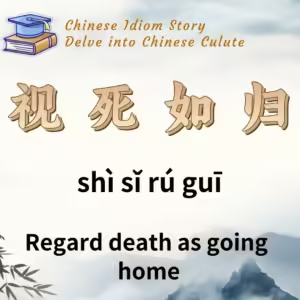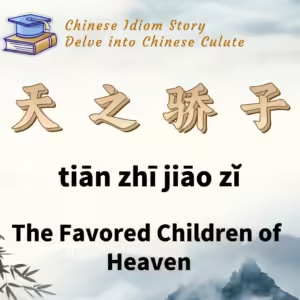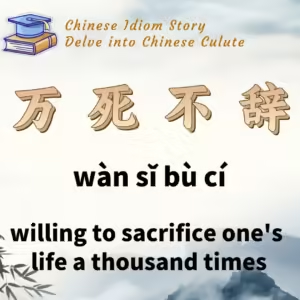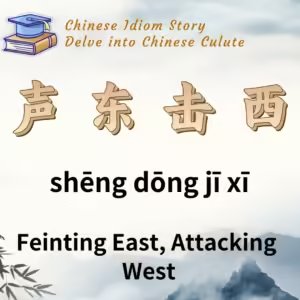
Chinese Idiom: 视死如归 (Shi Si Ru Gui)
English Translation: Regard death as going home
pīn yīn: shì sǐ rú guī
Idiom Meaning: This idiom means to face death with the same composure and determination as returning home, symbolizing a willingness to sacrifice one’s life for a just cause.
Historical Source: Bái Mǎ Piān (《白马篇》) by Cao Zhi.
Idiom Story:
Cao Zhi was born in the third year of the Xianping era during the Eastern Han dynasty (192 AD). His era witnessed the complete collapse of the Han dynasty, characterized by political corruption and vulnerable borders. Nomadic tribes like the Xiongnu and Xianbei not only oppressed the local laborers but also invaded Han territories, disrupting the peaceful lives of the people.
In his youth, Cao Zhi was filled with ambition and a strong desire to contribute to the nation. He harbored a deep disdain for the idle lives of aristocratic youths who wasted their time in urban pleasures. To express his discontent, he wrote the poem Míng Dū Piān (《名都篇》), which vividly depicted the debauchery of the wealthy youth engaged in drinking, gambling, and hunting.
In the poem’s last four lines, he lamented:
“白日西南驰,光景不可攀。云散还城邑,清晨复来还。”
(The sun races to the southwest; time cannot be grasped. The clouds disperse over the city; morning returns again.)
These lines convey the idea that time, like the sun setting, cannot be halted. He mourned the loss of youth spent in frivolous pursuits, emphasizing the wasted potential of a life devoted solely to pleasure.
Later, in another poem called Jiǎ Tán Piān (《假钽篇》), he used the imagery of a wild swan (鸿鹄) to contrast with shallow creatures like the shrimp and eels, illustrating how those fixated on personal gain and trivial matters are blind to the greater aspirations of noble individuals.
Cao Zhi also composed Bái Mǎ Piān, a five-character regulated verse, where he articulated his ambitions and resolve. In the last four lines, he wrote:
“名编壮士籍,不得中顾私。捐躯赴国难,视死如归。”
(My name is on the roster of brave soldiers; I must not think of personal matters. To sacrifice my life for the nation’s plight, death is like returning home.)
This reflects his readiness to put aside personal concerns for the sake of the country, viewing death not as an end but as a noble return to a greater cause.
Over time, the phrase “视死忽如归” was simplified and became the idiom “视死如归,” symbolizing the spirit of selflessness and dedication to justice, where one is willing to sacrifice everything for their beliefs.






